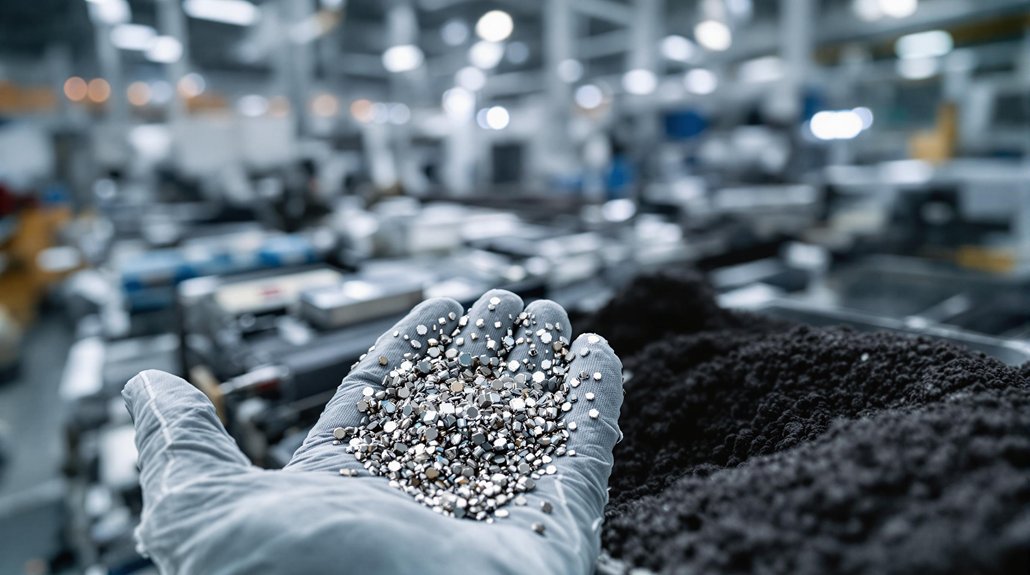Porsche has developed a three-phase recycling system for dead EV batteries that recovers valuable metals with impressive efficiency. The process shreds high-voltage batteries to create “black mass,” from which they extract critical materials like cobalt, nickel, and lithium with 95-98% recovery rates. This innovation reduces battery production’s carbon footprint by 20-30% and decreases dependence on raw material markets. The technology represents a significant step toward meeting upcoming EU sustainability regulations.
Porsche is turning old electric vehicle batteries into valuable metals through an innovative recycling process. The German automaker has developed a three-phase system that mechanically shreds high-voltage batteries to create what’s called “black mass.” This black mass contains many valuable raw materials that can be extracted and reused.
The recycling process recovers key materials like nickel, cobalt, manganese, and lithium from used EV batteries. So far, Porsche has produced about 65 tons of black mass through this program. These recovered materials are then used to make new battery cells, which are tested in Porsche vehicles.
The recovery rates are impressive. Porsche achieves 95-98% recovery of cobalt, nickel, and copper. With advanced hydrometallurgical processes, they can recover over 90% of lithium as well. These high recovery rates help reduce the need for new mining operations. The initiative also focuses on responsible resource management and extending the lifecycle of valuable materials.
This recycling initiative offers both environmental and economic benefits. It reduces dependence on volatile raw material markets and decreases the environmental impact of battery production. The carbon footprint of battery production can be reduced by 20-30%, while total vehicle manufacturing emissions may decrease by 6-12%. Similar to how wind energy technology has evolved to address environmental challenges, the automotive industry is finding innovative solutions to sustainability problems. Barbara Frenkel, a Porsche executive board member, has emphasized the strategic importance of this initiative for the company’s future sustainability goals.
Looking ahead, Porsche believes recycled materials could provide 30-40% of their battery materials by 2035. The company is preparing for upcoming EU battery regulations that will take effect in 2031. These regulations will likely require higher levels of recycled content in new batteries.
Porsche’s circular economy strategy focuses on reduce, reuse, and recycle principles. Beyond recycling, they’re developing Second Life Battery Energy Storage Systems and remanufacturing vehicle components. They’re also designing new batteries to be more recycling-friendly.
The impact extends beyond Porsche. By 2030, recovered materials from EV batteries could create a $15 billion annual industry. This shift reduces geopolitical dependencies for critical minerals and sets new standards for sustainable practices in the automotive industry.









